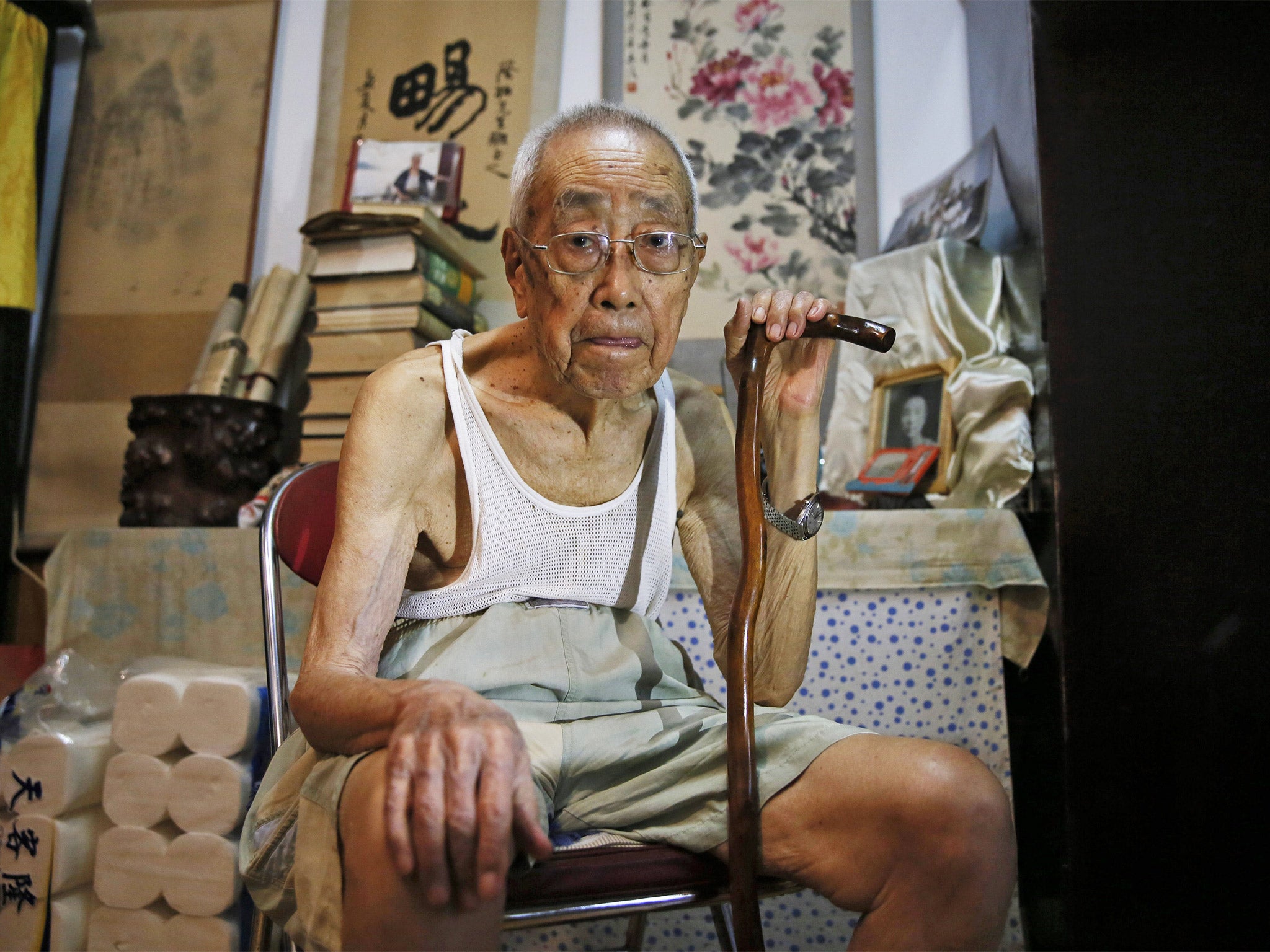China's forgotten Second World War veterans who don't toe the Communist Party line
For many veterans, Communist claims of war leadership are little more than fairy tales

Sun Yibai does not have much time for the Communist Party’s claim to have led China to victory against Japan in the Second World War.
“The Communist Party didn’t fight Japan,” says the 97-year-old, who once served with the fabled Flying Tigers aviation brigade. “They made up a bunch of stories afterward, but it was all fabricated.” That view challenges a basic premise underpinning Thursday’s lavish celebrations in Beijing of the 70th anniversary of Japan’s defeat: Mao Zedong’s Communists were the saviours of the nation, battling against Japanese forces that began occupying parts of China in 1931 before launching an invasion in 1937.
Veterans such as Mr Sun have long been on the wrong side of that narrative. Their service with the Nationalists led to imprisonment, persecution and often death in the years after the 1949 Communist revolution. Now they are living out their years shunned and forgotten by all but a few who care to hear their stories. “Nobody cares about veterans like me. Nobody cares. People just forget what happened in the past,” said Mr Sun.
In a Beijing suburb, Lu Chunshan, 91, held up fingers gnarled from two decades of hard labour, his sentence for having signed on as a military cadet with the Nationalists in 1942. Following the war, Mr Lu found temporary employment but was dragged before baying crowds during political campaigns in the 1950s and 1960s and denounced as an enemy of the Communist cause.
“If you tangled with the Communists, then it was as if you made no contribution at all to speak of,” said Mr Lu said. “If you did just what the party said, you’d have a good life.” Despite his faded documentation confirming his national service, Mr Lu receives no pension, surviving mainly on 2,400 yuan (£249) a month provided by a former employer, a state oil company.
Most independent historians agree it was the forces of the Nationalist Party, or Kuomintang, led by Chiang Kai-shek, that led the anti-Japanese struggle and suffered the vast majority of casualties. Following the war’s end, the exhausted and divided Nationalists were defeated by the Communists in a renewed civil war and fled to Taiwan, cementing Mao’s claim to having defeated imperialism, unified the country and overthrown the feudal order.
While the Nationalists’ contribution to the war effort is no longer denied outright, it is heavily minimised, and veterans are largely ignored. “The mainstay role of the Communist Party was the linchpin in the victory of the entire nation in the war of resistance,” top party historian Gao Yongzhong recently told reporters in a reiteration of the party’s basic line. “This has been long established.”
Formal 70th anniversary commemorations begin with a ceremony at the Great Hall of the People to honour veterans – at least those whose service has been officially recognised. Thursday will see a massive military parade through Beijing showcasing the growing might of the People’s Liberation Army, which has unnerved many neighbouring countries.
China marks victory over the Japanese on 3 September, the day after Tokyo’s formal surrender, though the festivities gloss over the fact that Japan surrendered to the Allies aboard a US naval ship and that Chiang Kai-shek was the Allied commander for mainland China at the time.
For veterans like Mr Sun, Communist claims of war leadership are little more than fairy tales. “These are the facts: the Communist Party was weak and had no power to oppose the Japanese,” Mr Sun said.
He said his service has never been recognised by the current government and he receives no pension or other assistance, although the government has promised priority placement in a nursing home.
Professor Zhou Yongsheng of Beijing’s China Foreign Affairs University is one of a handful of mainland scholars advocating a shift in the party’s approach to the Nationalists’ wartime record. Denying their role and discriminating against veterans is unfair, he said: “We should look at this veteran issue with a fair, objective and historical perspective.”
AP
Subscribe to Independent Premium to bookmark this article
Want to bookmark your favourite articles and stories to read or reference later? Start your Independent Premium subscription today.

Join our commenting forum
Join thought-provoking conversations, follow other Independent readers and see their replies